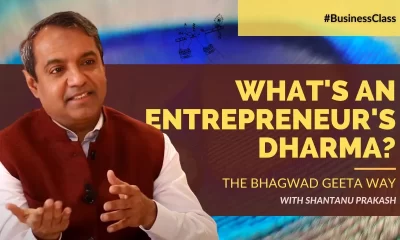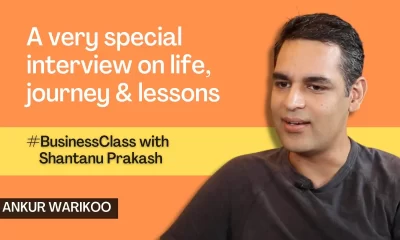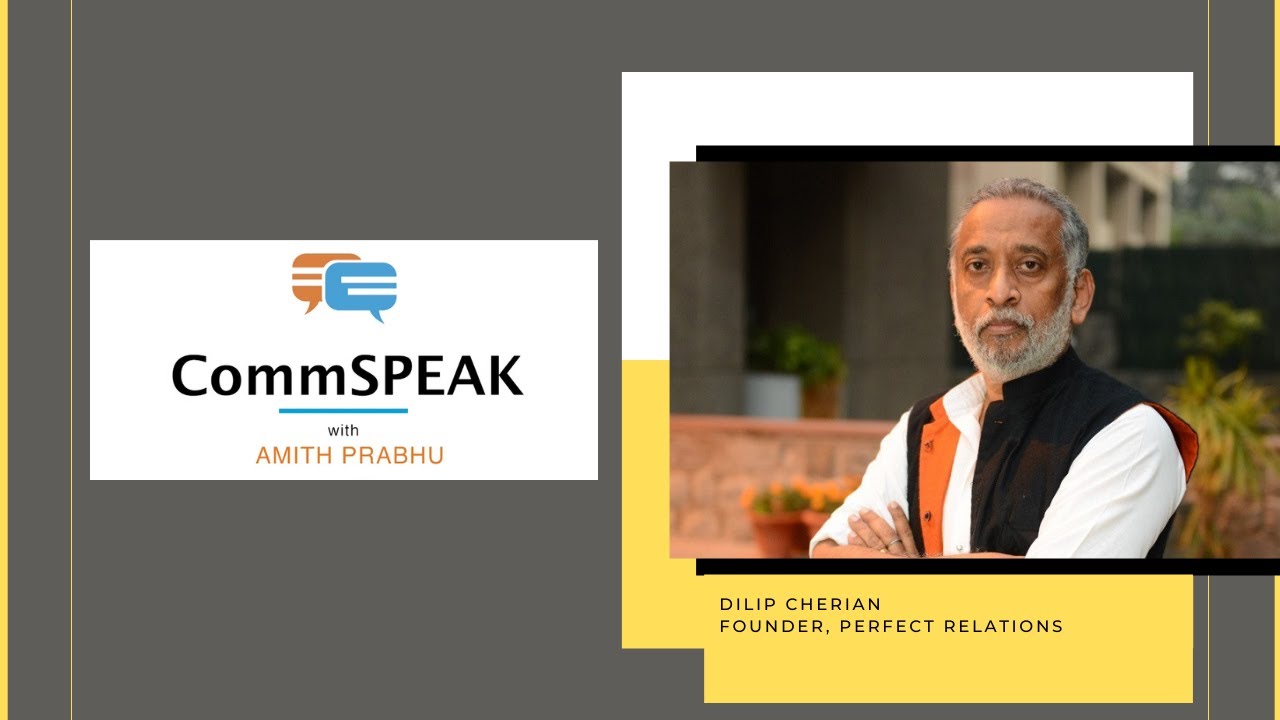Uncategorized
Ranveer Brar in conversation with Shantanu Prakash | Business Class
Ranveer Brar in conversation with Shantanu Prakash
It’s not only the product with which you can move ahead in the game, there’s more to it. Watch celebrity Chef Ranveer Brar telling some handpicked business tips which he learnt in his journey from being a sidekick at a kabab restaurant in Lucknow to being a recognised Chef. Celebrity chef Ranveer Brar shares his interesting journey from being an apprentice with a kebab stall to being a celebrity, a restaurateur, an entrepreneur, master chef judge, TV host and a lot many things. His journey filled with so many highs and lows has several lessons to learn. Inspiring startup story indeed for young entrepreneurs. Born in Lucknow, it was somewhat inevitable that he would be fascinated with the city’s street kebab vendors. When he was 17 years of age, one such kebab ustad, Munir Ahmed, tutored Brar on the finer points of kebab making. That was the epiphanic moment that made him choose cooking as his calling. It took a good deal of convincing his parents who were important land-owners in the district that their son could be a cook and yet be respected, and finally Brar was able to enroll himself at the catering management college in Lucknow. At the age of twenty-five, he became the youngest executive chef of India. His career began at the Taj Mahal Hotel in Delhi, after which he worked at the Radisson Blu, Noida. He then moved to New York where he had the privilege of cooking at James Beard House. In Boston he opened two award-winning restaurants, BanQ and Kashmir. He returned to India as the senior executive chef of Novotel, Mumbai. Ranveer has gone on to do several TV shows including Ranveer’s Cafe, Breakfast Xpress, Snack Attack, Homemade, Thank God It’s Fryday and The Great Indian Rasoi. He was a judge in the fourth season of MasterChef India, and is currently in the process of opening new restaurants in Bengaluru, Madrid and Mumbai. He was featured in the list of ‘Top10 Chefs of the Country’ by Hotelier magazine, and was covered in the book Celebrated Chefs of India by Marryam H. Reshii. He was given the award for best TV chef at the Indian Telly Awards, 2015. Today, Ranveer describes himself as a food nomad who attempts to put his travels on to a menu. He is happiest when he has a kitchen to play in. About BusinessClass: An interactive show with leading industry figures, the Business Class is hosted by Shantanu Prakash – a revered name in the industry. His insightful conversation with new-age startups, founders and subject matter experts give viewers an inside into the culture of startups, their biggest challenges and their efforts to overcome them. From his extensive experience with the country’s most renowned investors, Shantanu also gives valuable business startup advice to these fast propelling startups. About FounderIndia: FounderINDIA is India’s first digital business news platform that broadcasts talk shows, chats, conversations, interviews with leading figures from the world of business, politics, sports, entertainment, social sector and others.

Business
The IBC Loophole: When Insolvency Becomes a Corporate Exit Strategy
India’s Insolvency and Bankruptcy Code was meant to be a recovery mechanism — not an escape hatch. But growing misuse of the resolution process has raised questions about whether IBC is being exploited to shed liabilities without real accountability.
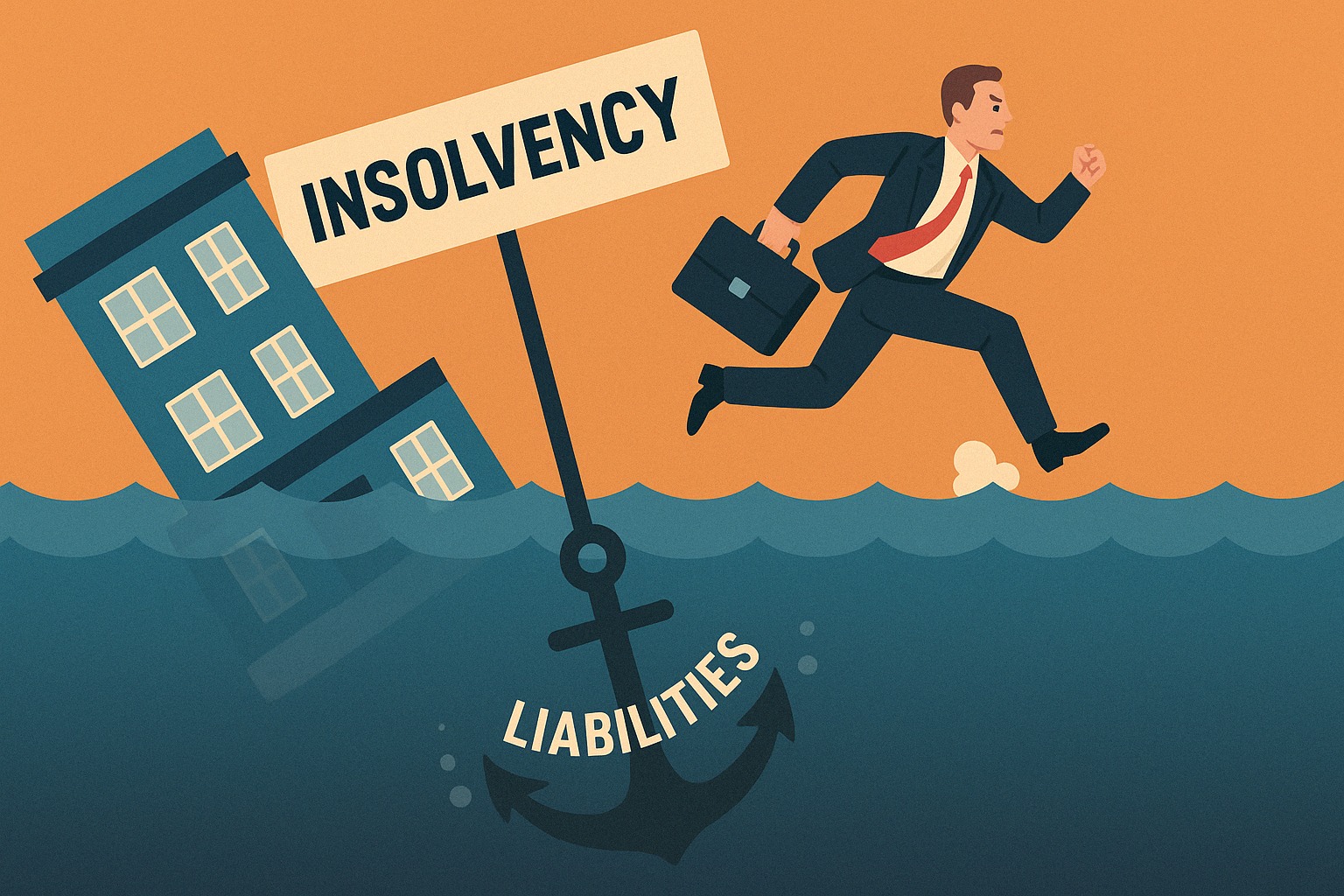
When India introduced the Insolvency and Bankruptcy Code (IBC) in 2016, it was hailed as a landmark reform to resolve corporate distress and clean up the country’s balance sheets. For the first time, lenders had a structured timeline and legal muscle to recover dues from defaulting borrowers. It was a turning point for financial discipline in India Inc.
But less than a decade later, cracks are showing.
Across industries — from media and infrastructure to real estate and retail — a growing number of promoters are voluntarily entering insolvency not just to restructure, but to wash away liabilities and walk away. In many of these cases, operational assets are stripped, employees are left unpaid, and dues to small creditors remain unresolved — even as promoters, through proxies or affiliates, circle back to reclaim assets at discounted rates.
The Strategy Behind the Exit
Legal experts and insolvency professionals point to a pattern:
- Deliberate default or over-leveraging
- Minimal recovery for creditors, often through resolution plans with massive haircuts (sometimes over 90%)
- Promoter-linked entities bidding to buy back assets at a fraction of the original cost
- Employees and vendors left unpaid, with no recourse
- Business resumes under a new name — often with the same ecosystem, client base, and leadership
High-Profile Examples Under Scrutiny
- Infrastructure and real estate firms where large creditors took deep haircuts and promoters retained influence behind new shell entities
- Media companies where broadcast licenses and content libraries were transferred or re-acquired post-resolution, with liabilities to employees, vendors, and content creators left behind
- Retail chains where store networks were rebranded or transferred, while operational creditors got pennies on the rupee
In some instances, the Committee of Creditors (CoC), driven by banks looking to recover whatever they can, approved plans that effectively amounted to settlements of convenience — often raising eyebrows within the insolvency ecosystem.
Why It’s a Problem
- Erosion of trust in the resolution system
- Small vendors and employees suffer, while large lenders settle for low recoveries
- Ethical concerns around backdoor promoter returns
- Potential rise in “strategic defaults” — where insolvency is planned, not forced
What Experts Say
Regulators and insolvency professionals have begun sounding the alarm. There’s growing demand for:
- Stricter scrutiny of resolution applicants to avoid promoter re-entry via proxies
- Tighter timelines and disclosures in the IBC process
- Safeguards for employees and operational creditors, who often remain unsecured
- Public interest audits in high-profile resolutions
The IBC was envisioned as a tool for revival, not a roadmap for reinvention without responsibility. As misuse grows, the line between genuine insolvency and strategic liability dumping continues to blur. If left unchecked, India risks losing the very credibility IBC was meant to create — and with it, the hope of building a cleaner, more accountable corporate culture.
Education
13 Deeksha Vedantu Students in Karnataka Top 10 Ranks
Thirteen students from Deeksha Vedantu have secured positions in the top 10 ranks in Karnataka’s recent academic assessments.

Deeksha Vedantu had 11 students from their Science stream and 2 students from Commerce stream secure places among the top 10 in Karnataka state—a powerful reaffirmation of their commitment to academic excellence.
The Science stream students with the top 10 scores in the state are:
- Sughosh Prashant Hegde and Neeti Holla scored 595 out of 600, state rank 5th
- Daksha Dinesh Hegde, Raksha Dinesh Hegde, and R Trupti scored 594, standing 6th in the state
- Sameeksha Anil Kulkarni bagged the 7th spot with a score of 593
- Avni Bhat scored 591 and stood 9th
- Anaghavalli R, Hethashree S, Prathiksha N, Sahana Gopalkrishana Bhagwat scored 590, bagging the 10th top state rank
From the Commerce stream, Deekshith J S and K R Suriya stood 9th in the state with a score of 591 out of 600.
Speaking about her stellar performance, the 5th state Science stream topper, Neeti Holla, from Deeksha Vedantu, Excellence Batch, said, “Deeksha’s simultaneous focus on PU and competitive exams like JEE/NEET was a game-changer for me. The structured weekly tests, strategic study resources via the KNOWVO app, and round-the-clock faculty support made preparation both streamlined and stress-free. I always knew what to focus on. Pertinently, I scored 99.46 percentile in JEE Main Session 1 and expect the best from JEE Advanced.”
Raksha Dinesh Hegde, with the state rank 6, said, “Although I was primarily preparing for JEE Main (B.Arch.), I never lost sight of the importance of scoring well in PU. The bite-sized study materials and mock tests helped me revise efficiently. Deeksha’s approach doesn’t just prepare you—it empowers you. In Session 1 of JEE Main (B.Arch.), I attained the highest percentile score in Karnataka and the 5th highest in India. My success speaks volumes about the efficacy of the integrated model of Deeksha Vedantu.”
Congratulating the students and teachers, Dr Sridhar G, Founder, Deeksha Vedantu, said, “We are immensely proud of the achievement of our children. Although, the results do not come to us as a surprise, we are supremely delighted. I compliment our children & teachers on their habit of delivering exceptional results. Remarkably, most of the top scorers in PU have also done comparably well in JEE Main session 1. This is another resounding vindication of Deeksha Vedantu’s excellence in achieving stellar learning outcomes.”
Deeksha Vedantu’s integrated pedagogical model continues to empower students to excel in both the Pre-University (PU) Board Examinations and national-level entrance exams like JEE, NEET, and KCET. This system of composite preparation—where competitive preparation is seamlessly woven into PU learning—has consistently delivered outstanding outcomes for over 25 years.
Business
Dilip Cherian in conversation with Amith Prabhu #CommSPEAK
-

 Business2 months ago
Business2 months agoIndia and U.S. Join Forces to Build Semiconductor Fabrication Hubs for Strategic Tech Leadership
-

 Auto2 months ago
Auto2 months agoIndia’s EV Push Gets a Boost with New ₹5,000 Cr Government Incentive Scheme
-

 Business2 months ago
Business2 months agoMedia in Meltdown: Inside the Financial Freefall of India’s Newsrooms
-
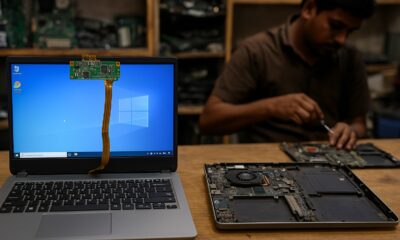
 Business2 months ago
Business2 months ago‘Frankenstein’ Laptops Rise in Delhi’s Repair Markets as Budget Tech Finds New Life
-

 Education2 months ago
Education2 months agoNEET UG 2025 Admit Cards Released by NTA — Here’s How to Download
-
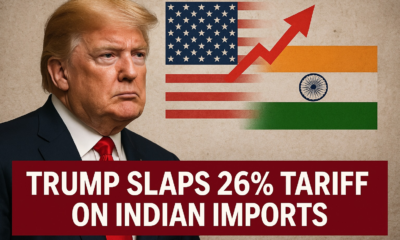
 Business2 months ago
Business2 months agoTrump Slaps 26% Tariff on Indian Imports, Triggering Tensions in Indo-U.S. Trade Ties
-

 Tech2 months ago
Tech2 months agoIndia Unveils $2.7 Billion PLI Scheme to Boost Electronics Manufacturing and Job Creation
-
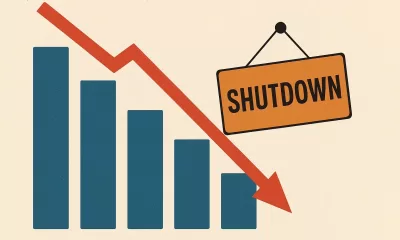
 Business2 months ago
Business2 months agoOver 28,000 Indian Startups Shut Down in Just Two Years — Is the Boom Turning Into a Bust?
